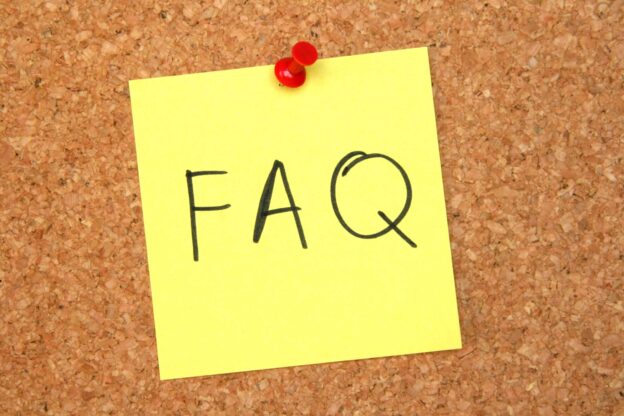The Payment Card Interchange Fee Settlement is a significant legal agreement that has a direct impact on consumers and businesses alike. This comprehensive guide aims to address frequently asked questions (FAQs) about the settlement, providing a detailed understanding of its implications and how to navigate the claims process.
Understanding the Payment Card Interchange Fee
The payment card interchange fee, also known as the swipe fee, is a fee that merchants pay to the payment card networks every time a customer makes a purchase using a credit or debit card. This fee is typically a percentage of the transaction amount and is intended to cover the costs associated with processing the payment and providing the necessary infrastructure for card acceptance.
The Background and History of the Settlement
The settlement was the result of a class-action lawsuit filed by merchants against Visa, Mastercard, and several major banks. The merchants alleged that the payment card networks and banks had engaged in anticompetitive practices and had set the interchange fees at artificially high levels. The lawsuit sought to recover damages for the merchants and to change the rules governing the payment card industry.
After years of litigation, a settlement agreement was reached in 2012. The agreement included a payment of $6.2 billion by Visa, Mastercard, and the banks to the merchants, as well as changes to the rules governing the payment card industry.
Who is Eligible to File a Claim?

Merchants who accepted Visa or Mastercard credit or debit cards between January 1, 2004, and January 25, 2019, are eligible to file a claim. This includes both brick-and-mortar and online merchants. However, certain merchants, such as government entities and financial institutions, are excluded from the settlement.
To be eligible, merchants must have accepted Visa or Mastercard cards in the United States and must not have opted out of the settlement. Merchants who have already received a settlement payment from a previous lawsuit are also excluded from filing a claim.
How to File a Claim for the Payment Card Interchange Fee Settlement
Filing a claim for the Payment Card Interchange Fee Settlement is a relatively straightforward process. Merchants can file a claim online through the official settlement website or by mail. The settlement website provides detailed instructions on how to file a claim, including the information and documentation that merchants need to provide.
Merchants are required to provide information about their business, including their name, address, and tax identification number. They must also provide information about their payment card acceptance practices, such as the types of cards they accept and the volume of card transactions they process.
Important Deadlines for Filing a Claim
The deadline for filing a claim for the Payment Card Interchange Fee Settlement was initially set for May 28, 2019. However, the deadline has been extended multiple times, and the current deadline is May 31, 2024. It is important for eligible merchants to file their claims before the deadline to ensure that they receive their share of the settlement funds.
Calculating Potential Compensation for Claimants
The amount of compensation that merchants may receive from the Payment Card Interchange Fee Settlement depends on several factors, including the size of their business and the volume of card transactions they processed during the relevant period. The settlement provides for a base compensation amount, which is then adjusted based on the merchant’s actual transaction volume.
The settlement also includes a provision for merchants to receive an additional payment if they can demonstrate that they were disproportionately affected by the interchange fees. This additional payment is intended to compensate merchants who paid higher fees than their competitors due to their specific business characteristics.
Potential Impacts of the Settlement on Merchants and Consumers
The Payment Card Interchange Fee Settlement has the potential to have significant impacts on both merchants and consumers. For merchants, the settlement provides an opportunity to recover some of the fees they paid to accept credit and debit card payments. This can help improve their bottom line and provide them with additional resources to invest in their businesses.
For consumers, the settlement may lead to changes in the way merchants accept card payments. Some merchants may choose to pass on the savings from lower interchange fees to their customers in the form of lower prices or other benefits. However, it is important to note that the settlement does not require merchants to lower their prices or provide any specific benefits to consumers.
Frequently Asked Questions (FAQs) about the Payment Card Interchange Fee Settlement
Q.1: What is the Payment Card Interchange Fee Settlement?
The Payment Card Interchange Fee Settlement is a legal resolution that resulted from a class-action lawsuit against Visa and Mastercard. The lawsuit alleged that these payment card networks engaged in anticompetitive practices by imposing excessive interchange fees on merchants. The settlement aims to compensate affected merchants and provide injunctive relief to promote fair competition in the payment card industry.
Q.2: How does the Payment Card Interchange Fee Settlement affect consumers?
While the settlement primarily focuses on merchants, it indirectly affects consumers as well. The interchange fees imposed on merchants are often passed on to consumers in the form of higher prices for goods and services. As a result, the settlement may lead to lower prices for consumers in the long run.
Q.3: Who is eligible to submit a claim for the Payment Card Interchange Fee Settlement?
Merchants who accepted Visa or Mastercard credit or debit cards between January 1, 2004, and January 25, 2019, are generally eligible to submit a claim. Eligibility criteria may vary depending on the specific circumstances, so it is essential to review the settlement agreement or consult legal counsel to determine eligibility.
Q.4: How can I submit a claim for the Payment Card Interchange Fee Settlement?
To submit a claim, eligible merchants must complete the necessary forms and provide supporting documentation. The claim submission process can be done online through the Certificate Clearing website, which streamlines the process and ensures efficient handling of claims.
Q.5: What documents do I need to submit with my claim?
Merchants are required to provide relevant documentation to support their claim, such as sales data, transaction records, and financial statements. These documents help establish the extent of the merchant’s participation in the payment card network and the impact of interchange fees on their business.
Q.6: How long will it take to receive a settlement payment?
The timeline for receiving a settlement payment can vary depending on various factors, including the complexity of the claim and the number of claims submitted. However, the settlement agreement outlines a general timeline for processing and distributing settlement payments, aiming to ensure timely compensation for eligible merchants.
Q.7: What is the role of the Certificate Clearing website in the settlement process?
The Certificate Clearing website serves as the central platform for submitting claims and managing the settlement process. It provides a user-friendly interface for merchants to submit their claims, track the progress of their claims, and access relevant information and updates regarding the settlement.
Q.8: Are there any fees associated with submitting a claim?
No, there are no fees associated with submitting a claim for the Payment Card Interchange Fee Settlement. The settlement agreement prohibits any fees or costs from being charged to merchants for participating in the settlement process.
Q.9: What happens if my claim is denied?
If a claim is denied, merchants have the right to appeal the decision. The settlement agreement outlines the appeal process, including the necessary steps and deadlines for submitting an appeal. It is crucial to carefully review the reasons for denial and consult legal counsel to determine the best course of action.
Q.10: What are the deadlines for filing a claim?
The current deadline for filing a claim is May 31, 2024.
Conclusion
The Payment Card Interchange Fee Settlement is a significant legal development that aims to rectify anticompetitive practices in the payment card industry. By understanding the settlement’s implications and navigating the claims process, eligible merchants can seek compensation for the excessive interchange fees they have paid. The Certificate Clearing website plays a crucial role in facilitating the claims process, ensuring transparency and efficiency.

